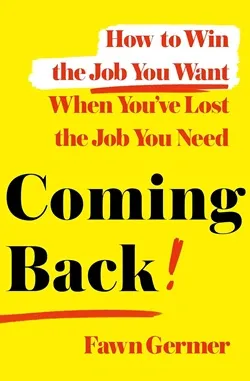
This book is, more than anything, for older job-seekers, although it’s a bit alarming that it was published in 2020, well-before ChatGPT was launched in late 2022. Essentially, Fawn Germer points her self-help stuff at those who have taken a break from work or who have let themselves become complacent in generaing extensive experience. In her view, experience simply is not enough anymore. Things change far too rapidly for long-term experience to make a great deal of difference at all.
Instead, employers are seeking adaptable, flexible workers who can adjust with the changing currents of time. These changes could be made up of new attitudes, cultural dispositions, or technological changes. Without these skills, employees–whether management or executors–are as good as irrelevant.
There’s something to be said about this being a 21st century, self-help version of Alvin Toffler’s Future Shock. Toffler saw the great acceleration taking place in the mid-20th century, and now it’s here. I think we were a bit too slow to talk about it, and now it’s too late. As Nick Land mentions in one of his essays (from his later, reprehensible period):
The suspicion has to arrive that if a public conversation about acceleration is beginning, it’s just in time to be too late. The profound institutional crisis that makes the topic ‘hot’ has at its core an implosion of social decision-making capability. Doing anything, at this point, would take too long. So instead, events increasingly just happen. They seem ever more out of control, even to a traumatic extent. Because the basic phenomenon appears to be a brake failure, accelerationism is picked up again.
Germer is far less theoretical than Land can ever be, and her advice is pragmatic: pick yourself up, learn new skills, and lean into the transformations circling around us. There isn’t really anything we can do about them: you can either get with the program or get lost.
I think that this book has become increasingly relevant since it was published; Covid-19, technological transformation, and increasingly layoffs/gutting grants in the U.S. federal government are reshaping both the public and not-profit sectors. Even if someone works for local or state government or a charitable organization, it is very likely that they are affected by these changes. Making matters worse, the amount of competition for remaining jobs is intense due to the hundreds of thousands of people (if not millions) entering the American job market.
So, what do we do? We learn. We learn about everything we can. We shape up our appearance, take notice of trends, and do not allow ourselves to become comfortable in our maturity. After all, young people are filling the ranks of management positions, and they do not want to be patronized to. If all else fails, you can always dive into the grift gig-economy or start your own business.
As uncomfortable as I was with Germer had to say here, it is really important, and there’s a lot here we can learn from. There’s also good material on age-related discrimination that will be especially useful for those aged 45+.